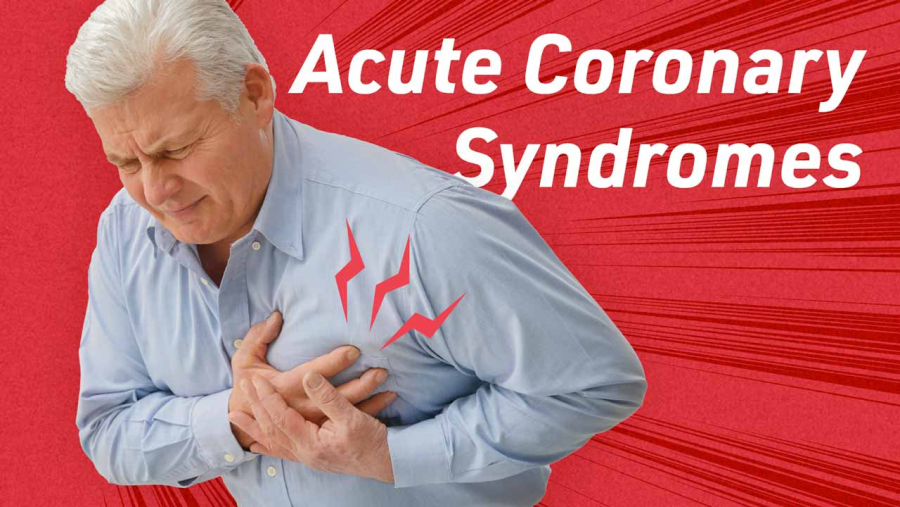News and Article
Be Aware of Acute Coronary Syndrome: Know the Causes and Prevention

Acute Coronary Syndrome (ACS) is an emergency condition that occurs when blood flow to the heart suddenly decreases, usually due to a blockage or narrowing of the coronary arteries. If blood flow to the heart is reduced, the heart muscle doesn't get enough oxygen. When this happens, heart tissue cells can be damaged or even die, leading to a heart attack.
Some common symptoms include:
- Chest pain or discomfort around the chest; feeling tight, pressured, or burning.
- Pain spreading from the chest to other body parts, such as the shoulders, arms, upper abdomen, back, neck, and even the jaw.
- Nausea or vomiting.
- Sudden excessive sweating.
- Feeling a faster heart rate.
- Dizziness.
- Fainting.
If someone experiences similar symptoms, immediate medical attention is necessary. The goal of treatment, whether with medication or procedures, is to increase blood flow and prevent complications.
Acute Coronary Syndrome is most commonly caused by plaque in the coronary arteries. This plaque is made up of fat, cholesterol, and other substances. Plaque can block blood flow in two ways:
- Plaque gradually builds up, causing the blood vessels to narrow, which can lead to symptoms.
- Unstable plaque suddenly ruptures, and a blood clot forms around it, severely narrowing the blood vessel and potentially causing a complete blockage.
Prevention of ACS is divided into primary and secondary prevention.
- Primary prevention focuses on preventing ACS from occurring in the first place. This can be achieved through maintaining a balanced diet, engaging in regular exercise and physical activity, also avoiding nicotine use.
- Secondary prevention involves therapy to prevent further damage and disease progression after someone has already been diagnosed with cardiovascular disease. Examples of secondary prevention include regularly taking prescribed medications such as antiplatelet drugs, antihypertensives, and anti-diabetic medications to regulate the comorbid condition.
Source:
https://medlineplus.gov/ency/article/007639.htm
https://www.mayoclinic.org/diseases-conditions/acute-coronary-syndrome/symptoms-causes/syc-20352136
https://www.ncbi.nlm.nih.gov/books/NBK547760/
